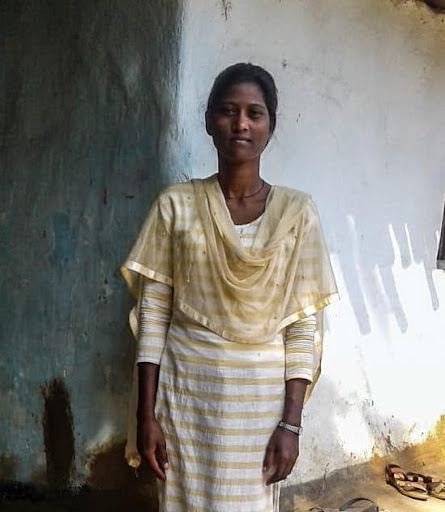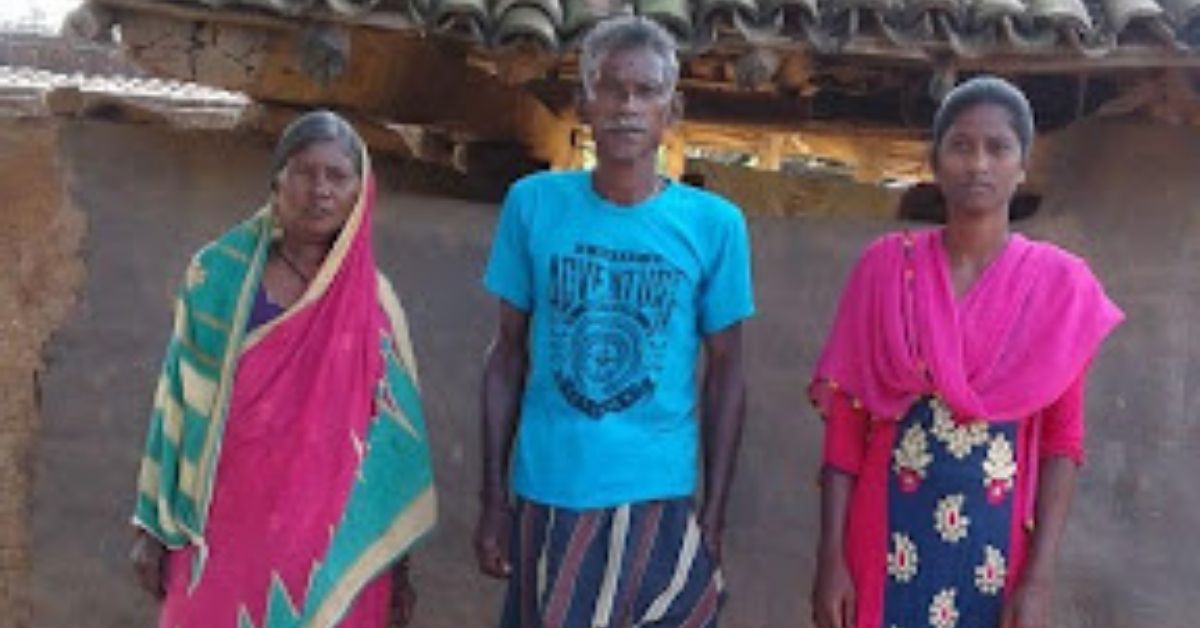This initiative is implemented in partnership with TATA Communications.
To sense an opportunity in adversity is a rare trait. This attribute along with her education led Kalawati Kumari, a resident of village Kurumdegi in Simdega district of Jharkhand, to win a cash prize to fund her humble microenterprise.
Kalawati happens to be one of the project participants of S.H.E. (School of Hope & empowerment), a combined initiative by The Better India and TATA Communications’ CSR team. Aiming to use inspiration and education to inspire women from rural India to become entrepreneurs, S.H.E. uses a series of inspirational and educational videos to create awareness and interest in entrepreneurship for rural women.
“I was among several women who watched the inspirational videos and felt if Hasrat Bano could do it, I could too,” says Kalawati when we reached out to her. “It gave me confidence.”

The 29-year old Political Science Graduate from Simdega College was referring to The Better India’s six-part inspirational series featuring the true story of a rural woman entrepreneur, Hasrat Bano, who overcame odds and established a couple of successful businesses.
Terrorised by a moneylender for not being able to repay a loan of Rs 10,000, Bano of Thanwa village under Medininagar Block in Palamu became a member of a self-help group (SHG) in 2013 and went on to save Rs 10 every week. Within a couple of years, she availed of a loan and repaid the moneylender. She later took an additional loan of Rs 80,000 from the SHG and opened a flour mill and added a shoe shop too. From these two businesses, she earns over Rs 20,000 a month.
Bano’s story is helping women like Kalawati to come out of poverty and dream of better times.
Meanwhile, Kalawati, the only child of her parents, makes a living through agriculture. Her family owns four acres of land and grows rain-fed crops. “My father is aged now and has leased the land and shares the harvest with a farmer while my mother was recently diagnosed with a serious illness,” informs Kalawati.
Following her graduation, Kalawati applied for government jobs but without any success. Rather than sit idle she has been doing several odd jobs, like working in a hospital, helping an NGO, writing representations of villagers to local self-government bodies and even giving tuitions. “Initially, I had a good number of students for tuitions but now I hardly have one or two. I have been wanting to do something on my own when S.H.E. came as a Godsend,” says Kalawati.
Following the dissemination of the inspirational videos in several small towns spread all over Jharkhand throughout two months, S.H.E. received over 400 applications for mentorship and a chance to win a business grant. Of these, three including Kalawati were selected who pitched for setting up a flour mill.
After having attended the mentorship programme, Kalawati was given the first tranche of the grant amounting to Rs 25,000 of the total Rs 50,000. “The workshop imparted training on issues like keeping a book of accounts, customer relations, shop environment, the importance of saving,” says Kalawati. “All these have empowered me immensely and I am confident that I will be a success like Hasrat Bano.”
On why she pitched for a flour mill, Kalawati says, “Most people in our village make a living cultivating various crops. They have to travel some 30km in a bus or truck to get their wheat made into atta. They not only end up spending a lot of money and wasting time reaching the nearest chakki. I am sure my flour mill will greatly benefit them.”
Kalawati’s business pitch seems perfect considering Kurumdegi has a population of 900 plus inhabitants. Once her flour mill begins operation and the word goes around, she hopes residents of neighbouring villages—namely Chetmal, Chimtitoli, Dhodibahar—will soon benefit, considering its proximity rather than trek for 4 km.
Having discovered the power of storytelling and its ability to create real-life impact, Tata Communications and The Better India plans to expand the scope of S.H.E. Relying on digital communication to reach rural women in Bihar and Odisha, they hope several other Kalawatis’ lives can be transformed.
If you found our stories insightful, informative, or even just enjoyable, we invite you to consider making a voluntary payment to support the work we do at The Better India. Your contribution helps us continue producing quality content that educates, inspires, and drives positive change.
Choose one of the payment options below for your contribution-
By paying for the stories you value, you directly contribute to sustaining our efforts focused on making a difference in the world. Together, let's ensure that impactful stories continue to be told and shared, enriching lives and communities alike.
Thank you for your support. Here are some frequently asked questions you might find helpful to know why you are contributing?

